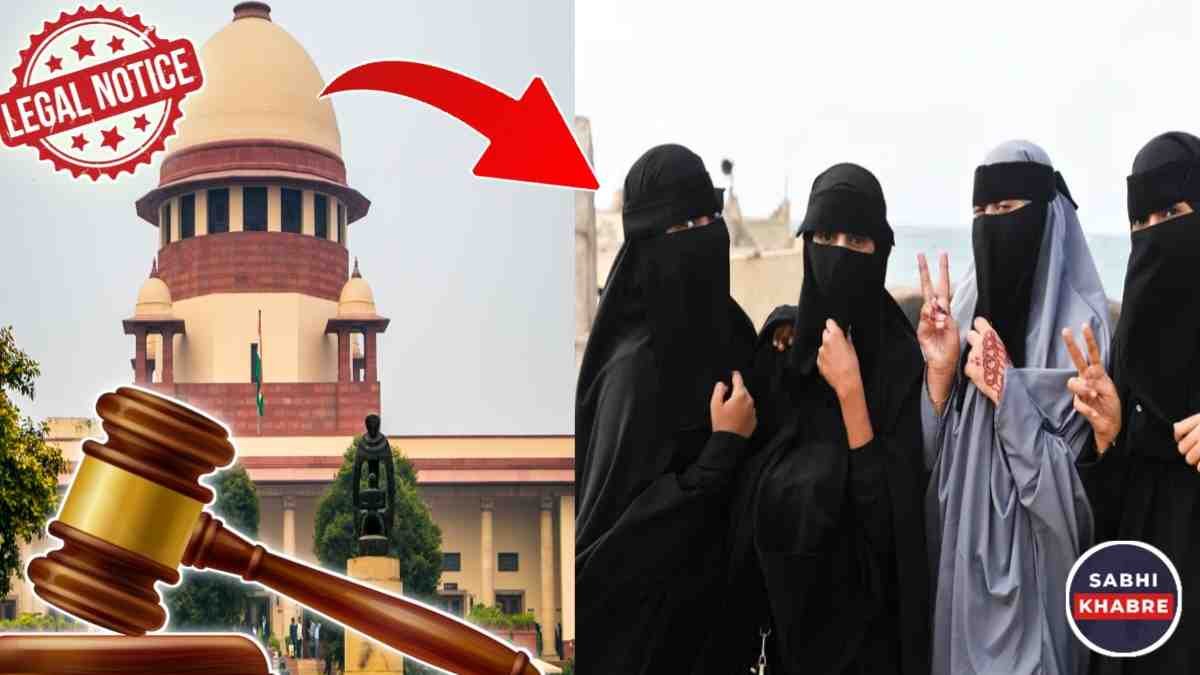
Supreme Court Hijab Ban Mumbai: DK Marathi College which is run by Chembur Trombay Education Society recently issued a circular in which they directed to ban the wearing of burqa cap and niqab within the campus, after this order, Muslim girl students studying in the college challenged it and approached the Supreme Court. They also argued that this circular is violating their religious faith and is also having a negative impact on their education, on which the Supreme Court said that educational institutions do not have the right to impose their choice on students.
Supreme Court Hijab Ban Mumbai
The court also questioned that if the purpose of the college was to hide the religious identity of the girl students, then why did it not ban Tilak and Bindi as well, the court said that it is an unfortunate situation that the college is suddenly realizing the diversity of different religions, Justice Khanna and Justice Kumar issued notice to NG Acharya and Chembur Trombay Education Society running DK Marathe College and asked them to respond by November 18.
Supreme Court Hijab Ban Mumbai
The court also asked the college administration that does the religious identity of the students not get revealed by their names, which you are asking about their clothes. Senior advocate Colin Gonsalves and advocate Abiha Zaidi, on behalf of the petitioners, argued that more than 400 students regularly wear hijab, which is their religious status and they wear hijab to show their conformity towards their religion, so they should not be asked to hide their religious identity, and due to the order of the college, they are also facing difficulty in attending classes, due to which they have taken recourse to the court.
Supreme Court Hijab Ban News Update
Earlier, the Mumbai High Court had refused to intervene in the decision of DK Marathe College. The High Court had said that the dress code rule of the college does not violate the fundamental rights of the students. The court argued that the dress code is for maintaining discipline and is a part of the fundamental rights of the college, which every college should fulfill.
It is mandatory to have a uniform in every college because it creates discipline among the students there. The Supreme Court clarified that the girl students should have the freedom to choose their choice regarding their dress. However, the court also said that wearing burqa inside the classroom cannot be allowed, and no religious activity can be allowed on the campus. The court said that its final order should not be misused by any party and if this happens then the college and the academic committee can come back to the court.
This case not only highlights the debate of religious freedom and individual rights, but also shows how respect for religious diversities and freedoms is necessary in the field of education. This order of the Supreme Court sets an important legal standard and reminds educational institutions to avoid discrimination on the basis of religious identity.

Hello friends, my name is Nitesh Kumar, I work as a news writer and I have also done journalism in which I have learned news writing and reporting, I publish current date Breaking news in it and If you want to contact me you can mail me at Help@Sabhikhabre.com


